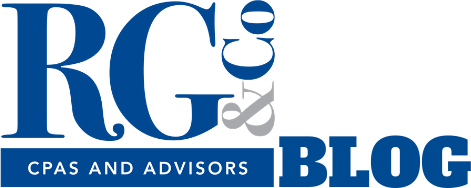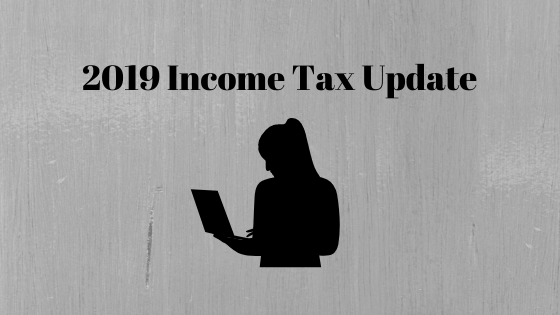In anticipation of the upcoming tax season, here are a few tips and reminders for closing out the 2019 tax year in order to maximize your tax benefits. We have categorized planning opportunities for businesses, individuals, and Trusts/Estates. While this list is not intended to capture all items, it may provide you with some nice “stocking stuffers” for the holiday season.
Businesses
Maximize the 20% Qualified Business Income (QBI) deduction (IRC §199A). Now that we have a year under our belt for this cashless “free” deduction, make sure you’re planning to maximize its benefits. There are several limitations, including W-2 wages and lack of depreciable property that can cause profitable pass-through entities to lose the benefit.
Use 100% bonus depreciation. While this deduction can conflict with maximizing QBID, this deduction allows businesses to expense 100% of the cost of tangible property immediately. Consider making First Quarter 2020 acquisitions now and placing them in service before December 31, 2019.
Also consider utilizing §179 deductions for interior “qualified improvement property,” as well as roofs, HVAC systems, and security systems.
Small businesses may be eligible for a $5,000 Disabled Access Credit for any improvements made to make property handicap compliant. Credits are always better than deductions, so review the list of many other tax credits available such as the Work Opportunity Tax Credit. Also, expense $15,000 in costs incurred to remove barriers to provide services to the disabled and elderly. This expensing election is allowed instead of capitalizing the costs.
Consider having a Cost Segregation Study completed if you’ve purchased, renovated, or constructed a commercial office building. The study identifies and reclassifies personal property assets to shorten the depreciable life, accelerating income tax benefits.
New business autos—meaning those used for business purposes—can be expensed up to $18,100 in their first year in service. Heavy SUVs (over 6,000 pounds) get the larger deduction with full 100% bonus depreciation.
Consider putting working-age children on the payroll: Their wages can be deducted as a business expense, and your child benefits from the standard deduction, which is $12,200 in 2019.
Ensure travel costs qualify as business travel and document them properly—good records are essential. Make sure the company reimburses owners for all business expenses paid out of pocket before December 31.
Separate and track meals that are 50% deductible from fully-100% deductible meals. Company-wide parties and meals/entertainment included in compensation are 100% deductible. Business meals with clients and office snacks and meals are 50% deductible. Since the passage of the 2017 Tax Cuts and Jobs Act, entertainment expenses such as concert tickets, golf games, sporting events, etc. are no longer deductible.
For business owners who have supplemental income, consider establishing a defined benefit plan and making contributions in addition to other retirement contributions. Defined benefit plans allow for much larger tax-deductible contributions.
Health insurance for business owners should be paid by the business, as it is 100% deductible. Special reporting rules apply for S-Corporation shareholders and Partners.
Individuals
Maximize your 401(k) by your final payroll of the year. The limit rose to $19,000 for 2019. This is often overlooked. If you are age 50 or over, you can increase that limit by an additional $6,000. The limit rises again in 2020, so make that adjustment in January.
Bunch your charitable contributions if your itemized deduction totals fall below the standard deduction. For example, due to thresholds, paying a pledge in one year may yield more favorable tax results than spreading it over two or three years. Also, clean out that house this holiday season and drop items off at your local Salvation Army or Goodwill box. Don’t forget to get that receipt. Non-cash charity is deductible at FMV.
Minimize the effects of the 3.8% Net Investment Income Tax by gifting investment assets to charity or your children. This can be a strategy that has long-term benefits.
If you are a participant in a High Deductible Health Plan, open and fund a Health Savings Account. The deduction is $7,000 annually for a family plan plus an additional $1,000 for each spouse age 55 and over. The deduction is allowed upon funding, not when the account is used for medical costs. The amounts can be accumulated over time.
If your mortgage interest deduction is limited due to debt thresholds, consider paying down the balance to make all interest deductible. Using investment assets to do this can also help minimize the 3.8% NIIT. Plan accordingly.
Use your Required Minimum Distribution to fund your charitable intent up to $100,000 per year. Talk to your advisor about a “qualified charitable distribution” and its impact on other tax limits and levels affecting your tax liability.
Now is a good time to review your withholding and other tax impacted items. The 2018 withholding table changes caught many taxpayers off guard.
Consider deferral of large gains using §1031 exchanges for real estate and Qualified Opportunity Zones / Funds for a longer-term roll-over strategy. Review your recognized gains in your investment account with your financial advisor to consider recognizing investment losses before year end to offset the tax impact.
Trust and Estates
Trusts and Estates pay income tax as well. These entities pay tax at the 37% top bracket on just $12,750 of taxable income. Consider distributions of income to beneficiaries before year end, if possible, to avoid this rate. Married individuals don’t hit the top bracket until $612,350 of taxable income.
Conclusion
Taxes may be unavoidable, but with proper planning, they can be minimized. Rivero, Gordimer & Company, P.A., can help ensure you are taking advantage of all the tax benefits available to you. Our professionals regularly review tax rules and regulations that can help maximize your tax strategies. Planning is not always about finding a missing “magic bullet” in your tax return, but more often provides peace of mind for that unintended tax bill.
Contact us today to schedule a consultation and ring in the new year knowing you’re positioned well and are prepared for tax season.
Happy Holidays!
About Mike Helton, CPA:
Michael E. Helton is a shareholder who joined Rivero, Gordimer & Company in 1999. He has considerable experience in tax preparation, planning, and consultation for individuals and businesses, estates and trusts, and mergers and acquisitions of closely held businesses. Mike has extensive experience with medical practitioners, rent-to-own businesses, and the construction industry. He also practices in business-owner succession planning, general financial and operational consulting, and representation of clients before the Internal Revenue Service.




